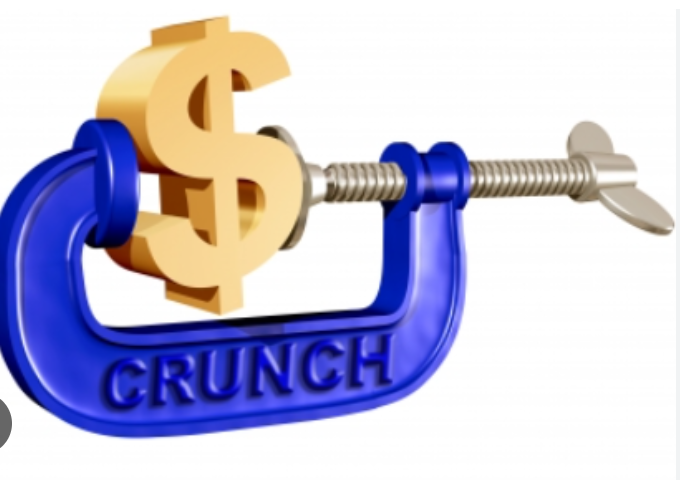Central Bank of Turkey on Tuesday unveiled a set of new measures to support monetary tightening drive, in moves the country’s finance chief said were aimed at reducing public deficits and lowering inflation, reported daily SABAH.
The measures came days after the Central Bank hiked its benchmark policy rate by 250 basis points to 17.5%, the highest level since October 2021, and promised more tightening.
The central bank’s new moves to support the tightening included raising the monthly maximum interest rate on credit card cash usage and overdraft accounts to 2.89%. It said the increase in the rate, from a previous 1.91%, was designed to control inflation and balance domestic demand.
“We continue to take and implement measures in line to improve our country’s balance of payments, reduce public deficits and reduce inflation,” said Treasury and Finance Minister Mehmet Şimşek.
Central Bank also instituted new curbs on monthly credit issuance of commercial lenders, imposing requirements to buy additional very low yielding government bonds on violators. On Wednesday, three state lenders also hiked the interest rate they charge on general purpose consumer loans.
“The decisions announced by the Central Bank today are aimed at lowering the current account deficit and reducing inflation in the medium term,” he wrote on Twitter.
Şimşek, the respected veteran policymaker who was appointed after President Recep Tayyip Erdoğan was reelected in late May, said Türkiye would “continue to channel our limited resources into exports and investments.”
The central bank has raised its one-week repo rate by 9 percentage points at two monetary policy meetings under its new governor, Hafize Gaye Erkan, who is leading a reversal from an easing drive that saw the bank cut its official borrowing costs to 8.5% from 19% since 2021.
The naming of Şimşek and Erkan, a former Wall Street banker, marked an initial sign that Ankara would revamp policies centered around monetary stimulus and opt for interest rate hikes to combat stubborn inflation, stabilize the volatility in the Turkish lira and rebuild foreign exchange reserves.
The less-than-expected interest rate hike last Thursday came amid economist expectations that inflation, which cooled to 38.21% in June, will surge by year-end due to the lira’s decline and various tax hikes.
Erkan is set to announce her first inflation report on Thursday. The central bank’s current year-end inflation projection stands at 22.3%.
After its July 20 meeting, the bank said simplification of policy would continue gradually and selective credit and quantitative tightening decisions were being taken to support the monetary tightening process.
On Tuesday, the bank said it set the monthly growth limit for lira commercial loans at 2.5%, down from a previous 3%, excluding export, investment and agriculture loans, to complement steps taken in a policy simplification process.
“The central bank reveals that the tightening will not only proceed with the increase in interest rates but also with the selective measures, the domestic demand will be narrowed,” said Enver Erkan, chief economist at Dinamik Yatırım.
The lira was little changed at 26.9550 against the dollar on Tuesday, near a record low of 27.05, having weakened 30% so far this year.
Among other steps, a reserve requirement ratio of 15% on foreign exchange-protected accounts was announced on July 21.
The bank said on Tuesday it had also decided to set the growth limit for vehicle loans at 2%, down from 3%, and to keep the 3% limit for general-purpose loans unchanged.
Export and investment loans and loans for the southeastern region that was struck by devastating earthquakes in early February will be exempted from the bank’s credit-restricting measures.
Steps have also been taken to support exporters’ access to financing, with the daily limit for rediscount credits raised to TL 1.5 billion ($56 million).
Comment: Heading for a credit crunch
Gaye Erkan’s ability to raise policy rates to a level consistent with lowering inflation is hampered by Erdogan’s hypersensitivity on the issue. It appears Mehmet Simsek is instead trying to cool down the red-hot economy by restricting credit. According to CBRT data, credit growth collapsed to low double digits for consumer and single digits for corporate loans since May-June dual elections.
A credit crunch is an awkward way to disinflate the economy, and businesses may soon appeal to President Erdogan to lift the curbs.
Follow our English language YouTube videos @ REAL TURKEY: https://www.youtube.com/channel/UCKpFJB4GFiNkhmpVZQ_d9Rg
And content at Twitter: @AtillaEng
Facebook: Real Turkey Channel: https://www.facebook.com/realturkeychannel/
